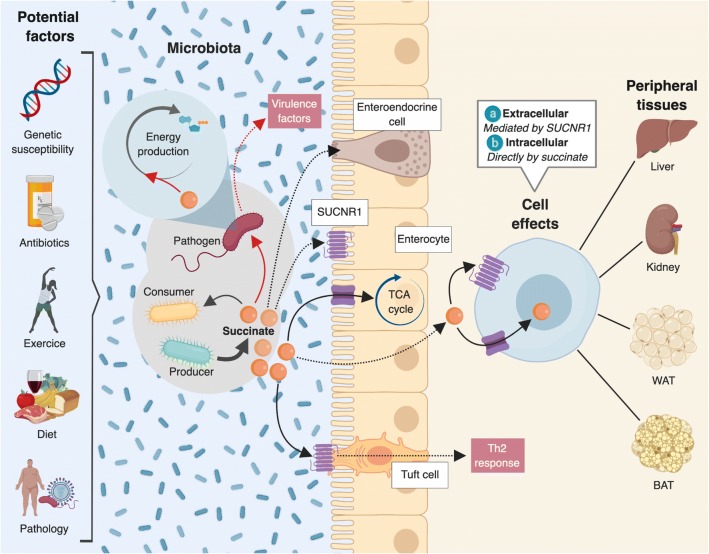Fig. 2.
Succinate as a potential intermediate in host-microbiota interactions. The intestinal efflux by specific gut microbiota, which can be affected by several endogenous and exogenous factors, might be a relevant source of circulating succinate. Similar to other metabolites, succinate might act as a fuel or signaling metabolite in host peripheral tissues regulating energy metabolism. Succinate has been reported to trigger intestinal gluconeogenesis, and type 2 immunity via SUCNR1 activation in Tuft cells. Whether gut microbiota-derived succinate might have other metabolic and immune effects in peripheral tissues cannot be excluded. Indeed, succinate has recently emerged as metabolite controlling activation of brown adipose tissue and some metabolic functions have been assigned to SUCNR1-signalling in other tissues (e.g negative regulator of lipolysis in adipose tissue, activator of renal renin-angiotensin system). In addition, the role of succinate in intestinal lumen on the microbial ecosystem might be of special relevance. Thus, succinate has emerged as a cross-feeding metabolite with a key role in the reconstitution of the gut bacterial ecosystem but also in commensal-pathogen interactions

